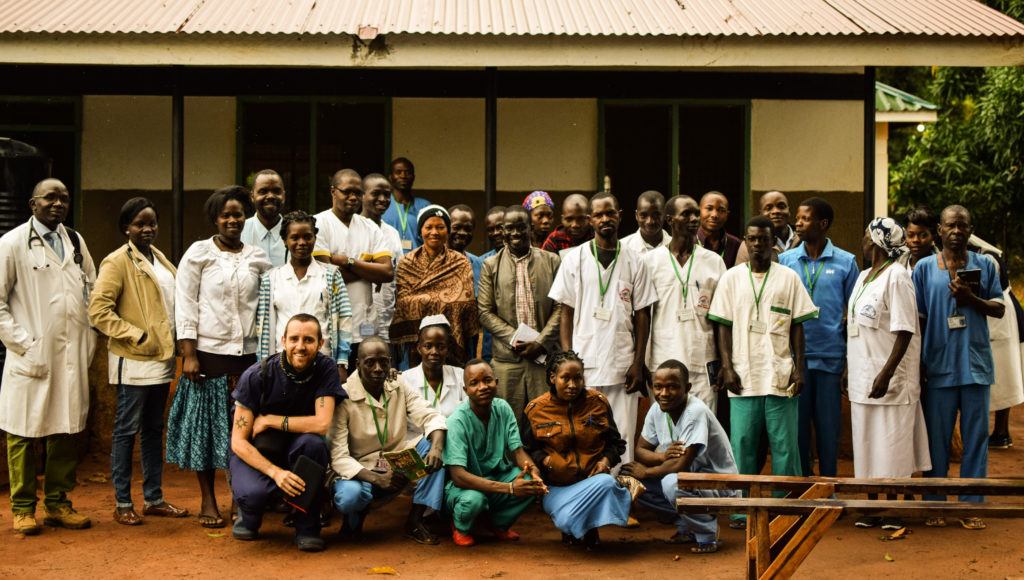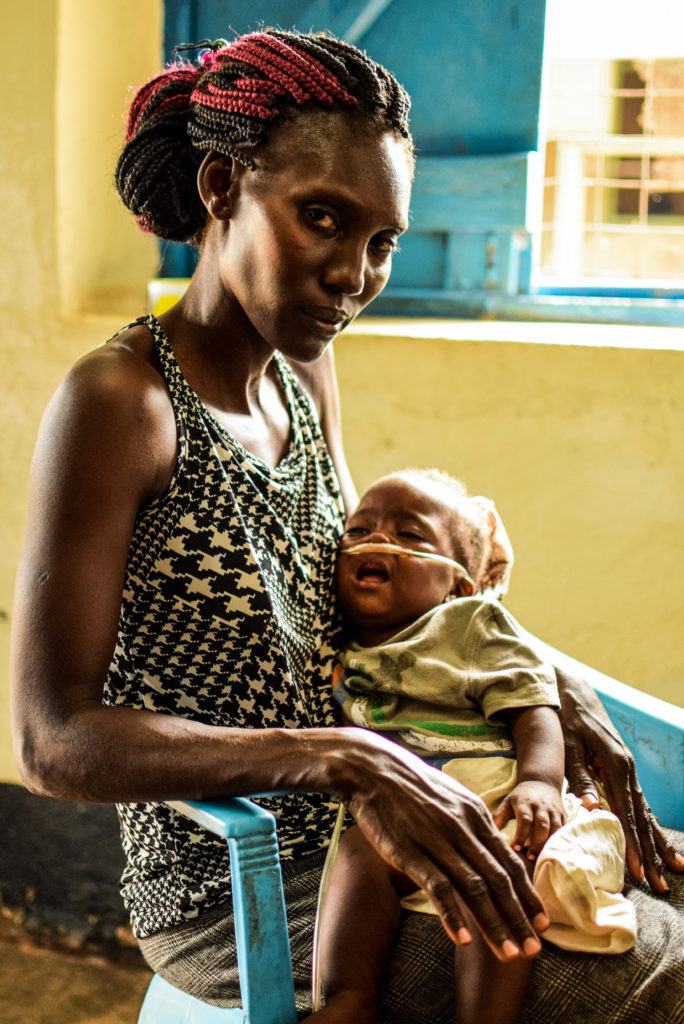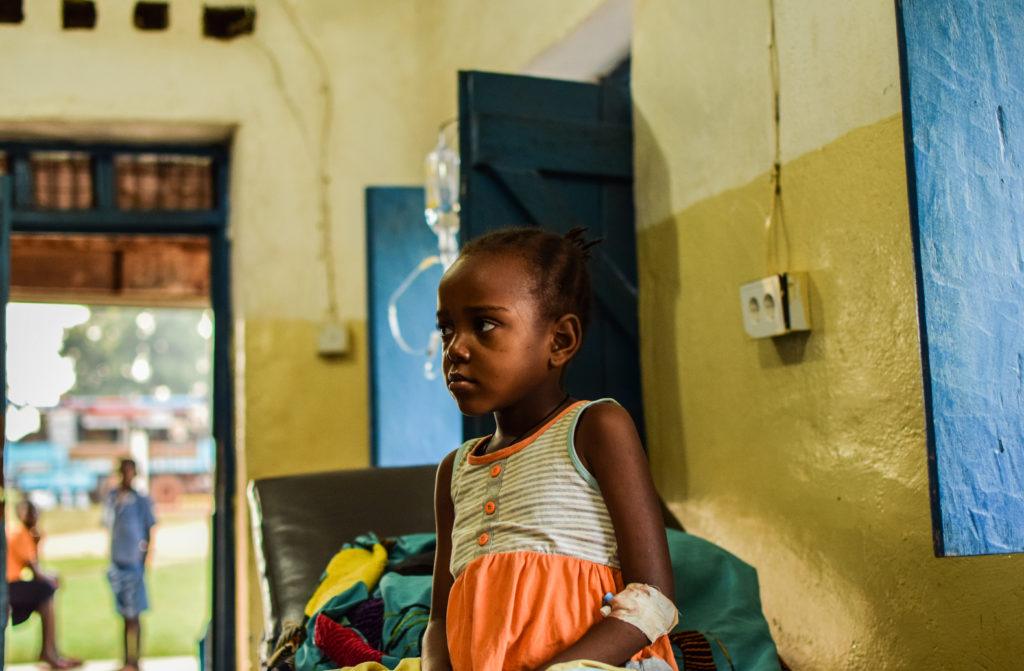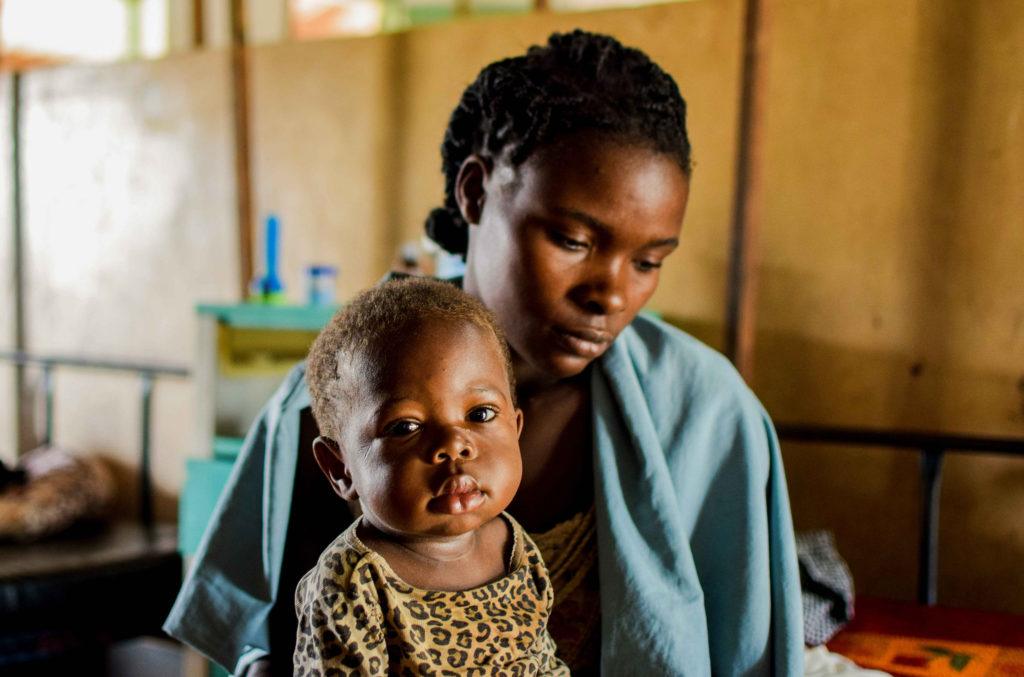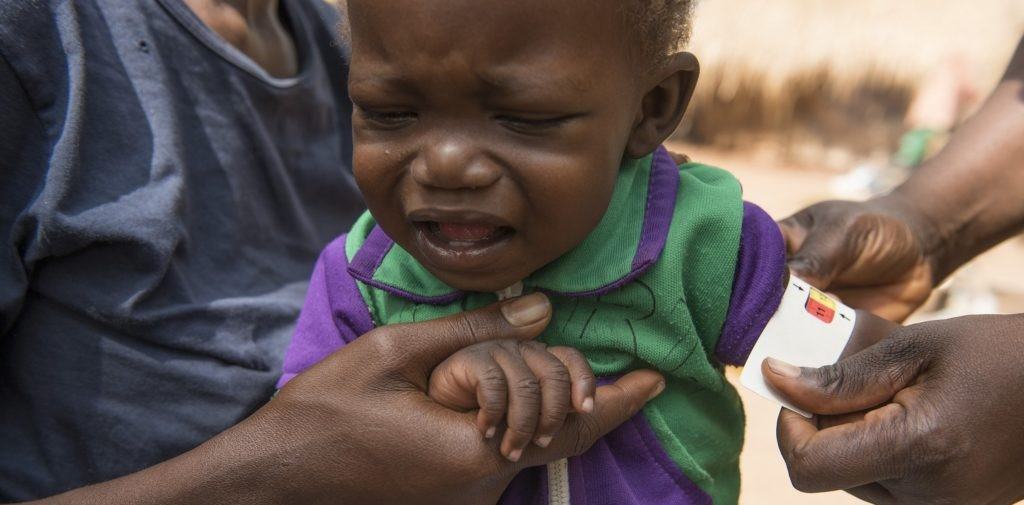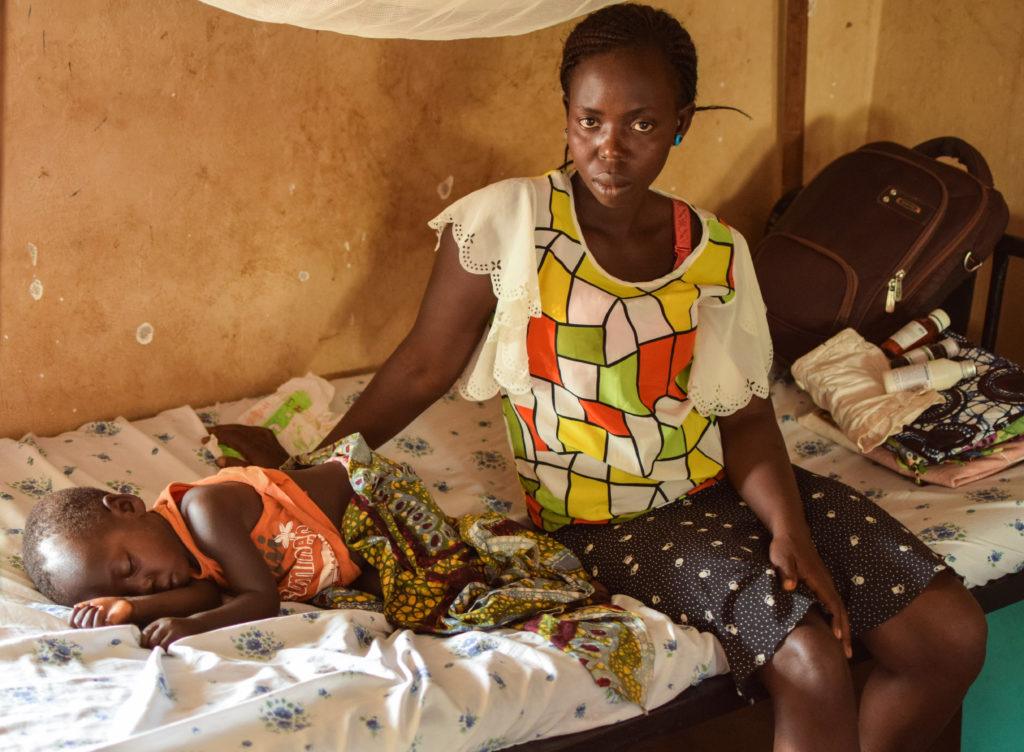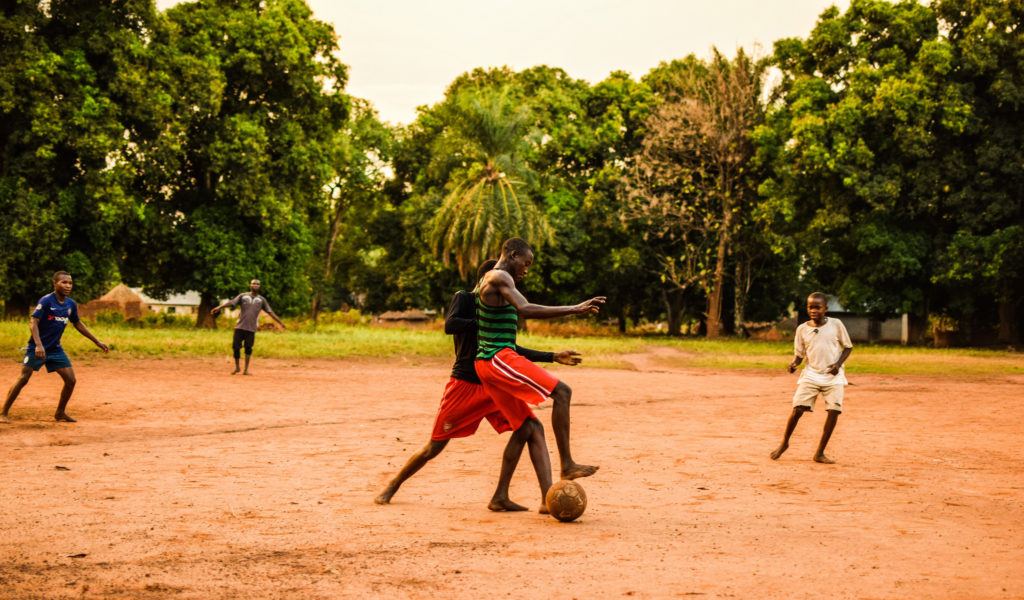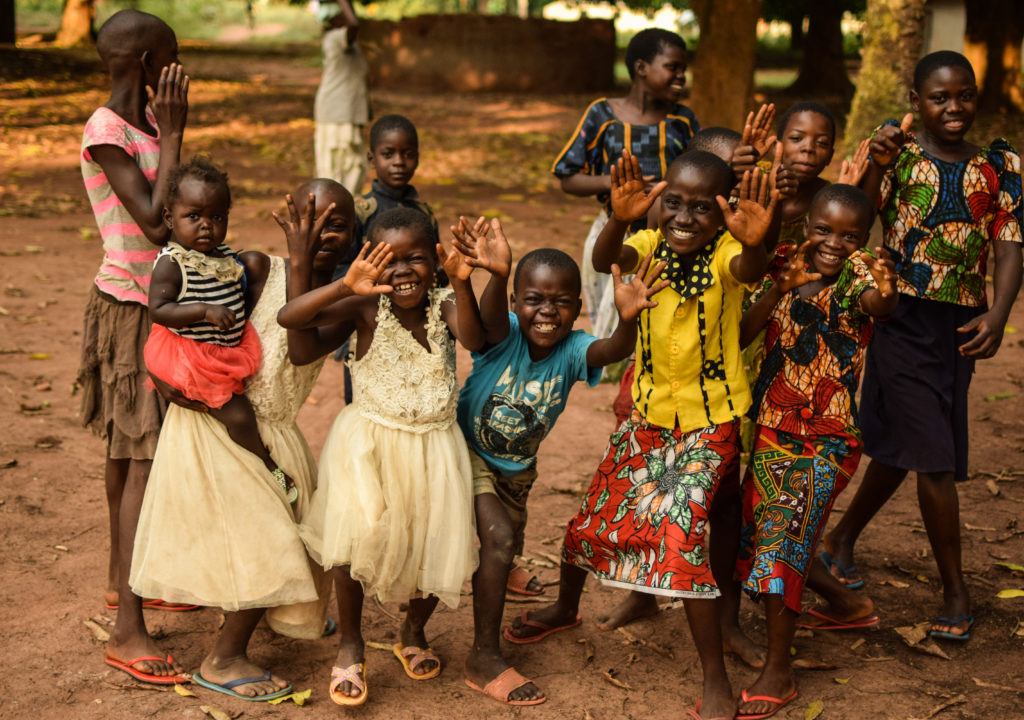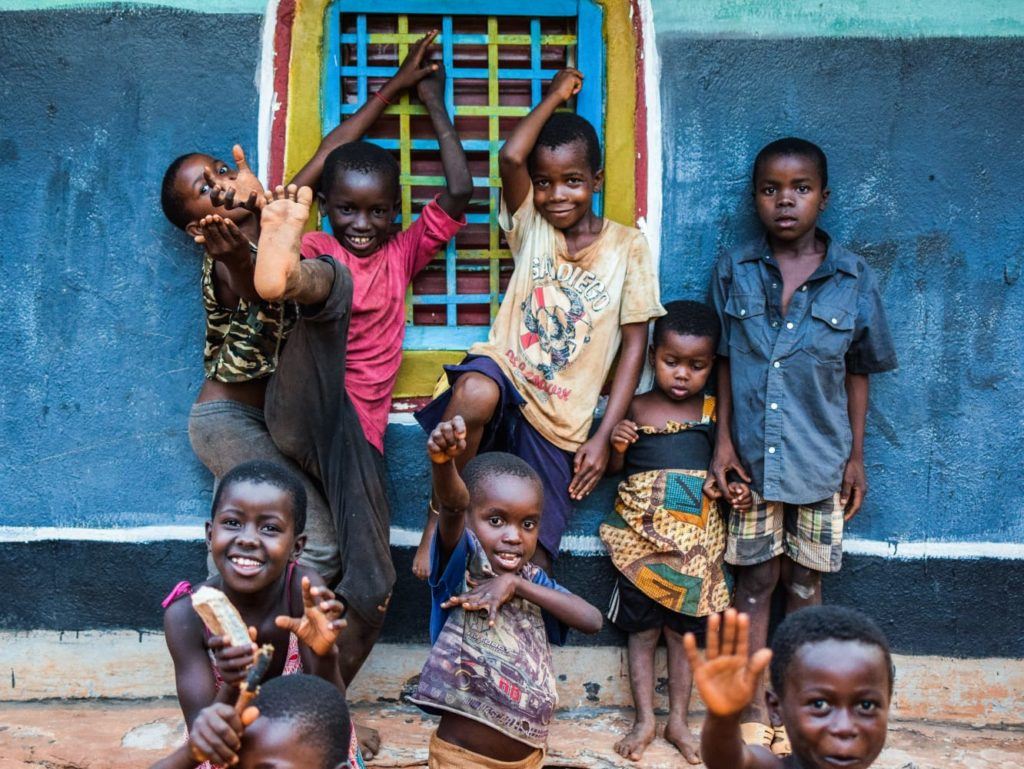Life: A Reflection from Matthew Jones in Nzara, South Sudan
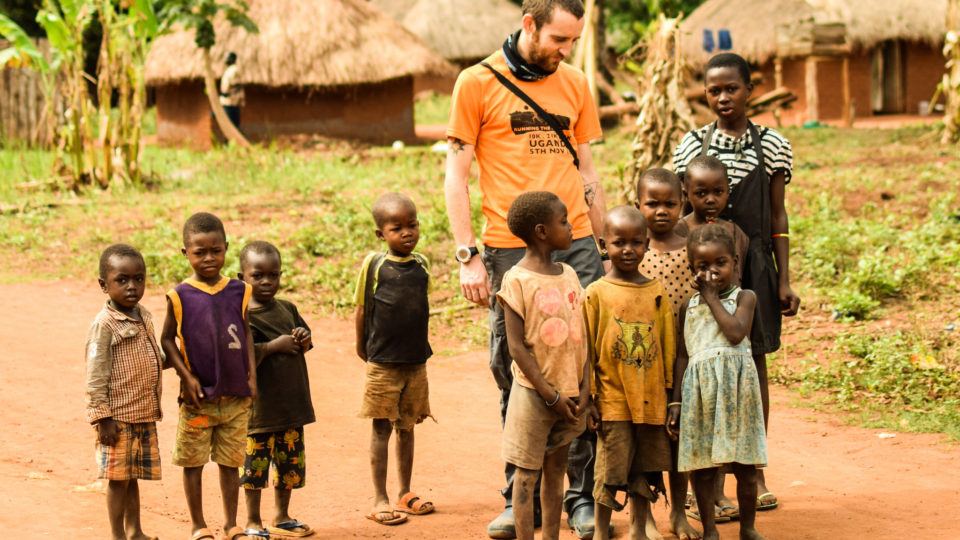
Matthew Jones, our first Aurora Fellow, is volunteering as a medical doctor in South Sudan for nine months at St. Theresa Hospital.
There’s a moment in every journey, halfway up the mountain, far from protective coastlines; those heady days of departure when well-wishers speed one along, words a tailwind to fill the sails, the novelty, the exoticism, the honeymoon, cheeks flush with excitement, those days are gone now, a memory, leaving one adrift in the calm, near empty doldrums of a long voyage.
As I sit in the cool early morning breeze outside my residence, a scattering of curious faces passing by, staring at the white man, I find the moment of peace and calm, and I write a little. Scattered, curious thoughts, pinpricks of light in the black night sky, in search of direction and meaning, some sense of what I am doing here, what it means to be here, and what when the times approach to leave, I will take with me.
Welcome to my world, the world of volunteering for 9 months in a remote, rural hospital in the world’s newest and most fragile country, South Sudan.
When I first arrived here, everything was a blur of casual brush strokes, all generalized observations and heightened sentiments. I found myself using the language of so many before me arriving in a strange and foreign land, the vocabulary of beauty and simplicity as one surveys a world so far removed from the advanced, material world to which we belong.
Children were all beautiful; life here was simple and true. The people were welcoming; the food surprisingly rich; and the hospital a beacon of light in a troubled land. For these are the superficial judgements of any tourist seeing a new world through fresh eyes, eyes tired of western sights, far afield in search of meaning and truth.
The early days of any journey are a moral narrative; oneself and one’s life at the center of the experience, the bright sun around which everything revolves.
But slowly, something changes, as it changed for me here. I stopped seeing the beauty, the truth, and the meaning, and I started to see crude, raw, reality, that troubling sensation, reality that knows no narrative, no story, no glory; reality that respects no human life; reality that defies analysis and our cherished hopes.
But in this reality, when the romance had died, something else emerged: the sight of humanity, pulsing, bloody, vital, unhemmed by our western perspective.
Humanity, that troubling beast, so little removed from the nature all about; so possessing of ambition and pretense; and so vulnerable to the wild, unsensing, black hand of nature, of death. A hand that lies over us all, never far, never caring, never discriminating, never judging, plucking at random from the ranks.
During my time here, 4 and a half months, I have worked every day, without break, without complaint. I attend mostly to the children’s ward, a tin roofed shed, in which you feel you are working in an oven on a hot day; there is a constant radiating glow from the roof and a sheen of sweat on your back as you work your way through 30, 40, 50 sick children.
On a bad day, as you begin the round, the cries of sick, fragile, scared children are close to deafening, and you want to shout back for a moment’s peace; basic medications can be in short supply, sometimes not dispensed. The cacophony is overwhelming, but you fight through; the basic task of assessing the children, their hydration, their fever, and their oral intake a reassuring comfort.
The staff are supportive and patient, but at times we are helpless before cruel nature; twice on ward rounds, a child has died within 20 minutes of my having seen them, overwhelmed by malaria, by anemia, by infection. Did I ever imagine when training to be a doctor that one day I would be so impotent, that my only response to a child’s dead body in front of me, to the wailing of a grieving mother, would be to simply carry on to the next child? Two worlds colliding, death and life, in the same minute. And me, a tall, white guy, an eye on both, a mind dragged away from a lifeless body to the hope of keeping the next child alive.
To see 40 children in succession in 3 hours, has been the most intense experience of my medical career: 40 histories taken, 40 examinations of tiny chests of crying infants, 40 management plans, a plethora of antibiotics, often of questionable clinical justification. There are pressures to discharge; delayed, sometimes lost investigation results; a constant effort to spot the truly sick children who might not pull through.
Then, as the ward round seems to draw to a close, you enter the nutrition room, fondly known as the waiting room, for its proximity to the gates of the afterlife for these most fragile of children and mute, despairing mothers.
The nutrition room is the toughest, least glamorous, and at times most hopeless ward on the face of the world as I construct it in my head; this bountiful land of the tropics — where luscious mangoes fall from the trees in some months in numbers exceeding the community’s ability to collect them, with pineapples, bananas, and nuts to reinforce their diet at other times of the year — this land somehow fails to nourish all its inhabitants and we see a steady stream of children arriving malnourished.
But not malnourished in an abstract sense as we know it in the west, we’re not talking about children who look a little small, who perhaps aren’t privileged by a daily breakfast, but children whose every bone in their bodies is visible, whose thighs are smaller than my wrists, whose skin hangs loose like poorly fitting clothes. The first time you see a child in this state is unforgettable; it gets easier but no less striking to the mind. Children who weigh 5kg at 2 years old; children who weigh 20kg at age 3, from all the fluid built up by a failing body; children whose only response now is an anguished cry, past hunger, a cry of desperate agony and dissonant being. If they could speak, would they wonder aloud how the world can create obesity so successfully in one group and not spare a gram or two of body fat for another?
Half the deaths of the hospital occur in and around this ghostly planet that so stealthily circles the hospital. We simply don’t have the skills, the resources, the staff numbers, or the experience to manage the complexity of severe malnutrition; and even when we succeed in holding afloat a child, we know on discharge they will likely return to the same life that deprived them of sustenance and that will likely claim them far from our eyes and care.
It becomes a strange exercise practicing medicine here, living a life of daily examination of starving children; for one cannot get down, lose hope or become angry; life is abundant here, and it continues whether one feels hope or not. I know with such clarity that the tone and tide of time have no interest in my narratives; the trends I try to spot in a child’s condition, the trends in how the ward works. They are all extrapolated in vain from data which really suggests trends so far out of our control, that to imagine I make a difference, that the hospital makes a difference, is rather vain and self-centered.
We dispense short courses of iron for anemia; but we know the population here is so collectively vulnerable to anemia that really it would take an investment in energy, money, and time in scale beyond that which we are capable of, to address this problem.
We patch up malnourished children and send them on their way, to large families in the bush, where the child must fight hard against siblings for the nutrition to survive, a futile fight most likely.
We talk of education programs in the community; but we don’t know where to begin. In teaching good sexual health and practice to resist the advance of HIV, hepatitis viruses and syphilis to name a few, we shut out ears to the faint cries from beyond our world, to villages beyond our reach, where children die in great numbers in the rainy season of malaria.
It’s not hopeless; it’s not demoralizing: it’s life here in South Sudan. There is no safety net, and when people, mostly women it saddens me to say, fall through the net, the landing is brutally and often fatally hard. The communities are strong, but the civil war has displaced so many and torn up structures that might once have protected the people.
In place of government and sometimes community, the hospital resides, saving lives every day, losing lives many days; a noble, valiant project that cannot itself reverse the courses of lives and communities.
I am touched by the resilience of the people here; they grieve so loudly and then return to the reality of existence, eking out an existence at the edge of the jungle, so far from the material, technologically advanced world I know; people who have little import in the current developments of the world, whose suffering from AIDS, TB, malnutrition, pregnancy related mortality, goes on and may always go on.
The country does not lack for charities and NGOs, whose banners and pendants flutter at the front of 4 by 4 vehicles as they move between towns; easy to be cynical about their impact, harder by far to recognize that charity will only ever be a short term fix here.
Far away from these dirt tracked roads, in cities which contain more asphalt in a single side street than all of the state in which the hospital lies, decisions are made on how to treat, how to save, and how to improve lives here; the people adapt and adjust to those decisions, some profiting by them, most unaware that those decisions have been taken.
The vast mass of humanity, subject to the ebb and flow of nature, whose hand contains mosquitoes and other parasites, alongside plentiful crops, just keep going as they have done for millennia, largely ignorant of the pleasures, the stresses, and the anxiety of material living. They tend their gardens and watch their children play with sticks and stones in the dirt yards; they marry, frequently multiply, and they manage; they don’t have middle class dreams of university, of holidays abroad, or retirement homes; there’s no escape, but then again, they don’t often ask for such an escape or perhaps imagine one.
Occasionally, a faint echo reaches this community of events beyond their purview. Football matches and regional politics mostly; but the anxieties of the west: global warming, overpopulation, and resource shortages, don’t belong here, no matter that they may prove most relevant here.
It is a land on the edge, closer to the edge, more vulnerable to a shove over the edge; but somehow you imagine that if we truly reap the harvest we have sown in terms of environmental decay and destruction, then when it all falls apart, the people here will survive and continue without much complaint.
When I walk home from a long day in the hospital, the sun setting behind me, a gentle orange light peaking from under the grey curtains of clouds that gather with the light failing to unload their contents by night, I am usually mobbed by gangs of young children. But there’s no menace here, no threat, no violence; the children just want their photos taken, no matter that they will only catch a brief glimpse on the screen of my camera. It may be the only mirror they have ever known. What do they see as they gaze on their faces?
Do they see the clichéd beauty of young, African faces with beaming smiles and dark, brown eyes that draw you into an unknown? Do they see the hope and future of this young nation, the majority of whose recent history has been consumed by civil war? Could they even begin to imagine the romantic notions these photos conjure up thousands of miles away, of carefree living without the anxiety of mortgages, careers, and examinations? I doubt it.
But the people, they just go on; they exist. Life is here.
And I am here, stuck in the cloud line on my lonely expedition to the summit; stuck in the doldrums far from land; trapped in the present with no world beyond the hospital.
It’s a beautiful place to be, I tell myself every day. And I find that beauty, and it makes my soul soar. But I don’t imagine this is anything other than my own internal world.
Thank you Nzara, thank you all: for what you’ll never understand. But you make me believe in humanity, in life; without narratives, without agendas. Life that just is.
